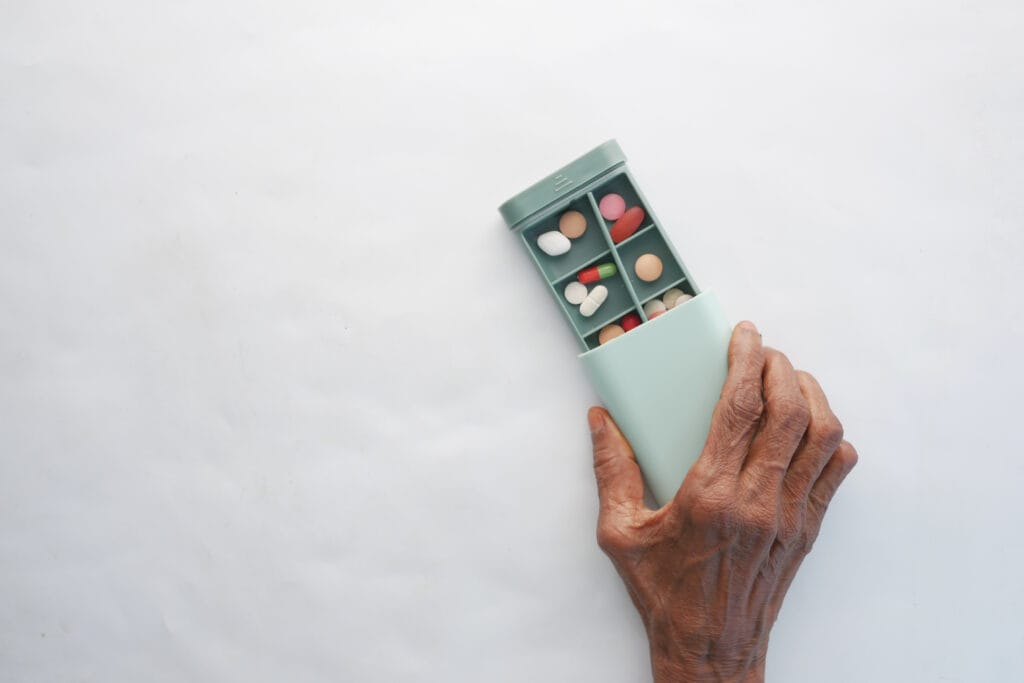Same topic
Topic "Memory loss in the elderly" with you to learn about related content and topics
Together to bring better healthcare solutions to the elderly
-
Tips for Caring for the Elderly with Dementia
-
Intermediate Stage Dementia | Living with and Caring for
-
Early stages of dementia | living with and caring for
-
Improve your memory and mental health with 10 games
-
Treatment of memory loss in the elderly
-
Diet to prevent memory loss in old age
-
Signs of Alzheimer's disease and care tips
-
Distinguishing between age-related memory loss and dementia
-
Stages and Symptoms of Alzheimer's Disease
-
Causes of Alzheimer's disease and risk factors
The early stages of dementia are often hard to detect, when people can complete many daily tasks as usual. However, dementia is a progressive condition, so it is important to predict when performing daily tasks will become more difficult.

What happens in the early stages?
In the early stages, many people get dementia can still continue daily activities such as going to work, going to the market, shopping...
However, over time they begin to suffer from memory loss and problems with judgment, recalling more. Signs of Alzheimer's disease. If you are a caregiver, you need some of the following care methods:
Plan the patient's day
It may take some time to form this habit, but writing down a list
- Daily tasks such as: breakfast, taking medicine…
- Mark appointments or events on a printed or online calendar, to keep track of dates and get better control of your time.
Set up a designated place to keep important everyday items, such as
- House keys, car keys
- Phone charger and wallet
- Or leave memory aids like sticky notes by the front door.
Use a pill box with compartments and an alarm

Those medicine box This has separate compartments for each day of the week–usually divided into morning-noon-evening.
Medication distribution for the patient should be established weekly by a family caregiver, or home care worker
Some have alarms to remind you to take your medication, or you may want to set a recurring alarm using a regular alarm clock.
Set up direct debit
Most companies or utilities now offer direct debits as a standard way to pay and keep track of bills.
Monthly bills for fixed expenses such as electricity, water, and telephone will be done automatically and there is no need to worry about forgetting to top up.
Shop online or find familiar stores
Alzheimer's Association research shows that for 80% people with this disease, Shopping is their favourite activity, however 63% feels that stores are not doing enough to meet their needs. This may include –
- Have difficulty moving around the store or finding the items they need
- Feel disoriented by bold patterns or shiny surfaces
- Feeling overwhelmed by the surrounding noise
- Problems with payments, such as forgetting your PIN, counting the correct amount, feeling rushed or using a payment machine
- Lack of social cues
If you are nervous about shopping in person, shopping online from the comfort of your own home can be a good alternative. Many online grocery stores allow you to ‘save’ your favourite items so you don’t forget them in your next order.
Start activities and brain training
Many people with dementia begin the games and activities brain training

often because many people believe they may maintain cognitive health for a longer period of time.
Physical activity is also important. The Ministry of Health recommends about 30 minutes of activity per day. – this could include walking to your local park, gardening or low-impact sports such as swimming or tai chi.
Improve home safety
There are a number of changes and checks you can make around your home to improve safety:
- Ensure carbon monoxide and smoke detectors and fire extinguishers are in working order
- Label drawers, cabinets, and cupboards to identify what's in them
- Remove any locks on interior doors to eliminate the risk of being locked out.
- Replace kitchen appliances with ones that have automatic shut-off features
- Install a thermostatic mixing valve on your sink and shower faucets – prevents water temperatures from reaching scalding levels.
Although spatial awareness or balance problems tend to occur later, you may also find it helpful to prepare by –
- Remove tripping hazards, such as rugs, extension cords, charging cords.
- Apply eye level stickers to glass doors or long windows
- Install side rails bathtub , toilets and bathrooms
Caring for someone with early-stage Alzheimer's disease
If you are supporting someone living with early-stage Alzheimer's, it is important to help them feel in control. Be there to listen and give them as much opportunity as possible to share their feelings and wishes.
When thinking about the future, have any care plans in place or together. make legal decisions – and spend a lot of time researching and preparing for what the ideal future would look like.
Pay attention to their mental health
Although it's natural to feel down from time to time, depression is unfortunately quite common in people with dementia.
A person with depression and Alzheimer's disease may also have trouble sleeping, lose their appetite or become irritable. If you are concerned that the person you are supporting is behaving or acting differently and think this may be due to depression, it is important to seek help from a doctor.
Prioritize their independence
While it's natural to want to make your loved one's life easier, it's important to task assessment before offering help. If there is no risk to their safety, it is more helpful to offer encouragement and wait until they ask for assistance.

Instead of rushing into doing the daily tasks for them, think about whether there is any assistance or action you can take to make it easier for them to complete these tasks themselves in the future.
Agree on how to provide help that they feel comfortable with
It’s not always easy to ask for or accept help. They may feel more comfortable giving you physical signals, such as nodding or gesturing with their hands – especially if they are around or talking to other people and need help.
You may also start to pick up on things that they often find difficult. In these cases, you may both find it helpful to sit down and agree on whether or not they want you to automatically participate in the future.
Or you can look for home support services that bring highly personalized, will be a way to provide companionship and emotional support
Source elder.org
Are you looking for home or facility-based care?
Hio is a pioneering platform providing comprehensive and personalized elderly care services at home and medical facilities. No additional costs, change caregivers without additional costs, immediate refund if customers are not satisfied, care information is continuously updated to ensure peace of mind for families.




